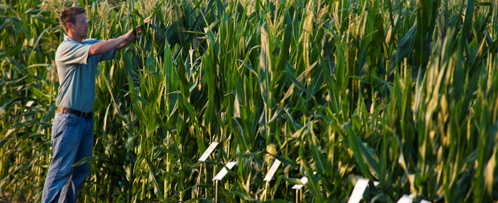Monsanto’s Ongoing Stewardship Efforts


Monsanto takes insect resistance management and the stewardship of our products seriously. In addition to the actions that can be taken by growers, we are focused on:
- Continually developing and updating agronomic recommendations for growers, especially with information tailored to local growing conditions, and typically including advice on refuge compliance, scouting techniques, the addition of soil-applied insecticides, maturity and harvest schedules, soil management practices, crop rotation, and adoption of products with dual modes of action.
- Expanding our offering of multi-gene corn hybrids that provide dual modes of action and increase protection for growers. We encourage farmers to begin trying these seeds with greater protection as the product line expands in their area.
- Researching and developing other genes in our pipeline so we can continue to deliver products with new and increased modes of action.
- Establishing the Insect Management Knowledge Program, pledging $3 million over the next three years to support academic research on corn rootworm.
- Continuing annual, wide-scale monitoring of insect populations through the Agricultural Biotechnology Stewardship Technical Committee (ABSTC), a consortium of agricultural biotechnology companies and associations, as required by the Environmental Protection Agency (EPA).
- Monitoring and studying the occasional performance inquiries in fields with very high insect population densities that exceed control thresholds.
- Meeting our required commitments to the EPA to report on these performance inquiries.
- Collaborating with industry through ABSTC and the National Corn Growers Association (NCGA) in farmer and dealer education and training on the importance of proper insect resistance management (IRM) (i.e. billboards, postcards), as well as developing tools for growers (IRM Calculator).
- Conducting annual grower surveys and on-farm visits – along with other biotechnology company members of ABSTC – to find ways to continuously improve our education efforts, as well as assess grower compliance to refuge requirements.
- Partnering with our farmer customers, as well as academics, in actively investigating and studying claims of insect resistance.









